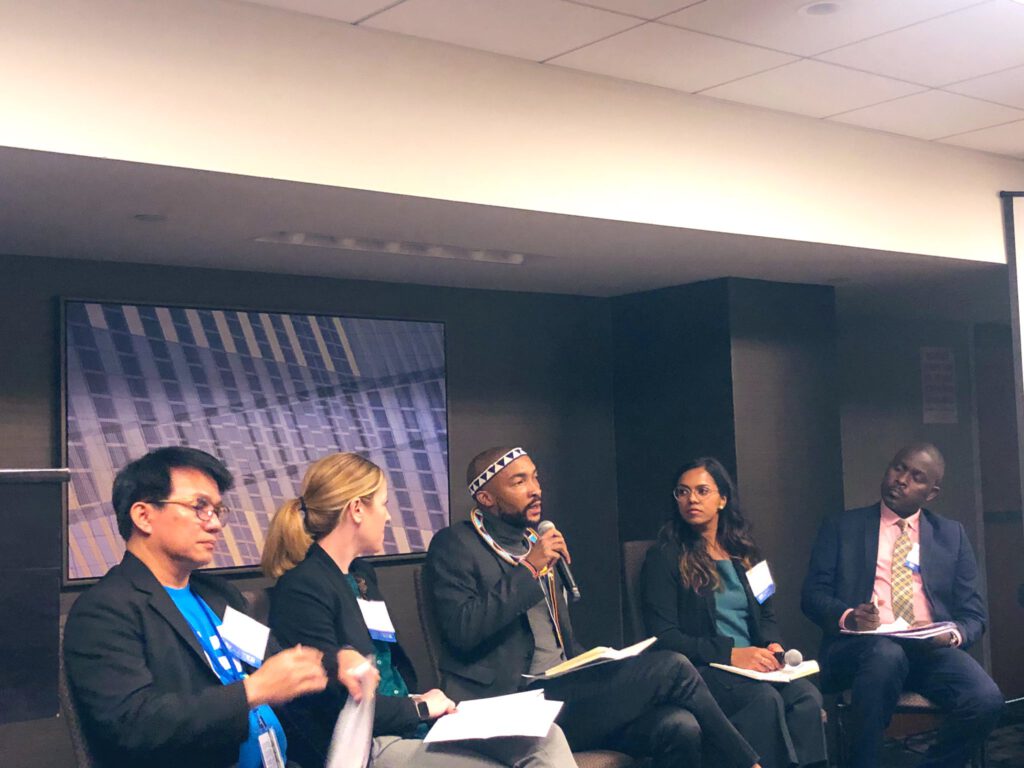Patient Champion Spotlight: Phumlani Kango

Phumlani Kango moderates a session during Turning the Tables: Patient Perspectives on UHC during UNGA74.
During the 74th United Nations General Assembly (UNGA) in New York City, Global Health Council provided several patient champions with the opportunity to share their stories, and contribute to discussions around universal health coverage (UHC). Following the week’s events, we sat down with each patient champion to get their thoughts on UNGA. Hear from our patient champion Phumlani Kango on his key takeaways from the week, including the role that UHC plays in addressing stigma.
Tell us about yourself?
I am a 29-year-old mental and sexual health advocate with a keen interest in HIV prevention amongst men who have sex with men. I also advocate for the use of pre-exposure prophylaxis (PrEP) and educate people on it. I live in the beautiful city of Johannesburg.
Why is universal health coverage (UHC) important?
UHC is important in that not all populations have access to healthcare. For example, key populations still face stigma when accessing health. If we had UHC we could avoid such things and everyone would have access to healthcare.
Describe one of your favorite events or one-on-one conversations during UNGA, and why?
One of my favorite conversations was with the Minister of Finance from Norway after the Discussion with Ministries of Finance on Fiscal Policies and Financing UHC held at the United Nations Headquarters. The conversation was very enlightening on the importance of Ministries supporting one another, and he mentioned the role that the Ministry of Finance plays in ensuring we achieve UHC.
We know this was your first time at UNGA. Did anything surprise you?
I was just surprised by the amount of people there, and I was pleasantly surprised by how everything was so organized.
What were some of the main recommendations or insights that you provided on panels or discussions?
One of the recommendations happened during the opening session of the One by One: Target 2030 Conference: Achieving UHC: A Sustainable Future for Africa. I made a suggestion on looking into colonial laws (ex. laws prohibiting same-sex relations) as these may still hinder people from accessing healthcare, since they are not protected by the law.
How do you plan to continue or relay these global conversations back home?
I have continued educating people on UHC and why this is important, and we are now also starting conversations around our National Health Insurance here in South Africa and showing why it may not work if the goal is for UHC.
What are your top three takeaways from the week?
Being confident in the work you are doing and knowing that there are other voices out there that share the same goal and message as you. The most important is that we live in a global society that is pushing for the same goal, so don’t ever stop pushing.